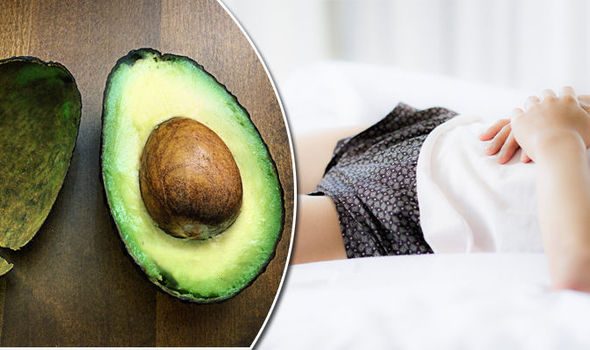Why Stomach Pain Occurs after Eating Avocado!
Avocados are generally considered a healthy food, as they are packed with nutrients such as fiber, vitamins, and healthy fats. However, some people may experience stomach pain after eating them. The exact reason why avocados can cause stomach pain is not fully understood, but there are several possible explanations:
- Intolerance: Some people may have an intolerance to avocados. This means that their body cannot properly digest the fruit, leading to symptoms such as stomach pain, bloating, gas, and diarrhea. This intolerance is often due to the high content of natural sugar called sorbitol, which can be difficult for some people to digest.
- Allergy: Avocado allergy is rare, but it can cause a range of symptoms including stomach pain, hives, swelling, and difficulty breathing. This type of reaction is caused by an immune response to the proteins in the fruit.
- FODMAPs: Avocados are high in FODMAPs (fermentable oligo-, di-, and monosaccharides and polyols), which are types of carbohydrates that can be difficult for some people to digest. This can lead to symptoms such as stomach pain, bloating, and gas.
- Fat content: Avocados are high in healthy fats, but some people may have difficulty digesting them. This can cause stomach pain and discomfort, especially if large amounts are consumed.
Being Sensitive to Avocado chemicals
Many people are indeed sensitive to the chemicals in food items; likewise avocado is rich in tyramine and histamine that makes the fruit ripe and smoother. Though some might tolerate the side effects, others are too sensitive to get hurt. They might experience abdominal pain and gastrointestinal symptoms that even result in bloating and diarrhea issues.
Having Latex-Fruit Syndrome
After eating avocados, some might face a stomach issue that is mainly due to an allergy to the fruit latex. This cross-responsive sensitivity, called latex-organic product disorder, happens when your body can’t recognize a latex allergen and an avocado protein that has a comparative structure. The safe reaction generally coordinated toward the latex allergen is then coordinated toward the avocado protein. This is the thing that causes nausea and stomach pain.
Having Fruit Sugar Mal-absorption
Though avocado is healthy, some people face problems based on indigestion, or non-absorption of fruit sugar, not just this but in some categories of fruits. Do you know avocados are FODMAPs fruit? If you experience the ill effects of fructose malabsorption, your stomach-related framework can’t process organic product sugars well. So on the off chance that you eat sweet natural products, it prompts swelling or stomach ache. Now avocados are very low on sugar, they contain polyols or organic product sugar alcohols. These are not as destructive as fructose is for individuals with this condition, however, having a lot of avocados may demonstrate hurtfully.
Might have Fiber Intolerance
A normal lady needs 25 g of fiber, a basic supplement, while a sound man needs 38 g. Yet, a few people have a much lower edge for fiber resistance, and they may risk gastrointestinal (GI) block, runs, gas, and swelling.
But if you’ve fiber intolerance, you will face issues like stomach bloating and flatulence that make you sick.
Avocado Stomach Pain Relief Remedy
If you experience avocado stomach pain, there are a few remedies you can try for avocado stomach pain relief. One option is to take an antacid or digestive enzyme supplement to help ease digestion. You can also try drinking peppermint tea or taking a warm bath to relax the muscles in your stomach.
Additionally, it may be helpful to avoid eating avocado or other trigger foods that cause discomfort. If your symptoms persist or worsen, it is important to seek medical attention to rule out any underlying health conditions.
Health Benefits of Avocado
Avocados offer various health benefits. They are rich in healthy fats, such as monounsaturated fats, which can promote heart health and lower bad cholesterol levels. Avocados also provide essential nutrients like potassium, fiber, vitamins C, E, K, and B-6, which support overall health and immune function. Additionally, their antioxidant properties may help reduce inflammation and oxidative stress.
1. Heart health:
Avocados are a good source of monounsaturated fatty acids, which are known to help lower cholesterol levels and reduce the risk of heart disease.
2. Weight loss:
Avocados are a good source of fiber, which can help you feel full and satisfied after eating. They are also low in calories and fat, making them a healthy choice for people who are trying to lose weight or maintain a healthy weight.
3. Digestion:
Avocados are a good source of fiber, which is essential for digestive health. Fiber helps to keep the digestive system running smoothly and can help to prevent constipation.
4. Blood pressure:
Avocados are a good source of potassium, which is a mineral that helps to regulate blood pressure. Eating avocados regularly can help to lower blood pressure and reduce the risk of heart disease.
5. Vision:
Avocados are a good source of lutein and zeaxanthin, which are antioxidants that can help to protect the eyes from damage. These nutrients are especially important for protecting against age-related macular degeneration, the leading cause of blindness in older adults.
6. Skin health:
Avocados are a good source of vitamins C and E, which are antioxidants that can help protect the skin from damage. They are also a good source of fatty acids, which can help to keep the skin hydrated and smooth.
7. Brain health:
Avocados are a good source of vitamin E, which is an antioxidant that can help protect the brain from damage. They are also a good source of folate, which is a B vitamin that is important for brain health.
Avocados are a nutrient-rich food that can be enjoyed as part of a healthy diet. They are a good source of vitamins, minerals, and healthy fats, and they have been linked to a number of health benefits. The recommended daily intake of avocados is one-half to one avocado per day. However, it is important to note that avocados are high in calories, so it is important to eat them in moderation.
Hope you find this article useful!



















